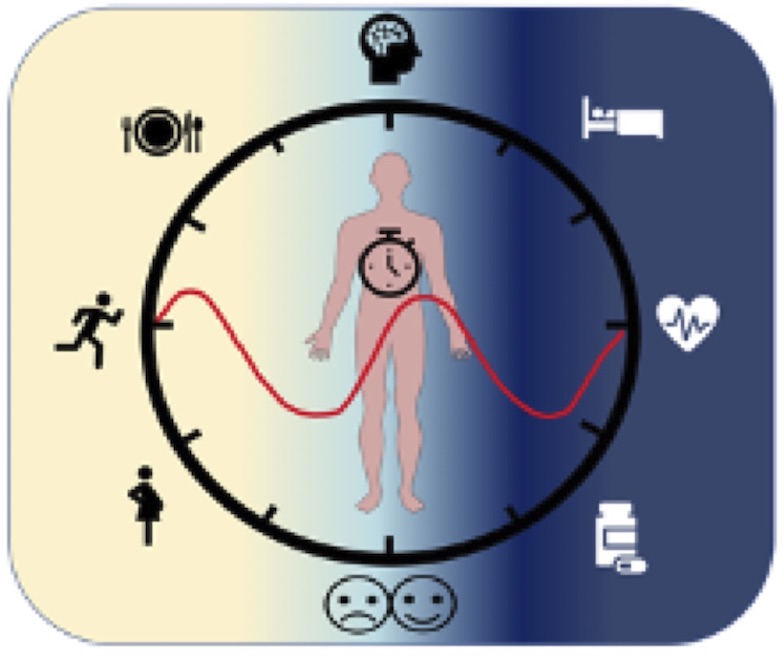Emerging evidence shows that circadian rhythms are negatively impacted by modern lifestyles that include shift-work, 24/7 access to food and services, and alterations in light exposure, sleep patterns and nutrition. The circadian clock regulates the expression of nearly 50% of the human transcriptome (in one tissue or another) and, thus, significantly affects physiology. Circadian biology modulates processes that impact disease risk, cognition and work performance, surgical outcomes, fertility and drug metabolism.
This class will cover basic principles of circadian biology and its relationship with a broad range of clinical outcomes. We will focus in both, molecular mechanisms and system/organism-level effects.
This elective pre-clerkship course was created to give medical, pharmacy, and Biology/Neuroscience graduate students knowledge about the role of circadian rhythms in health and provide them with the fundamental concepts to evaluate the impact of circadian alterations as human disease drivers. It is important for the next generation of scientists, physicians and pharmacists to understand circadian rhythms and to consider implementing circadian concept-based strategies in their future research design, patient care and health-oriented research.

